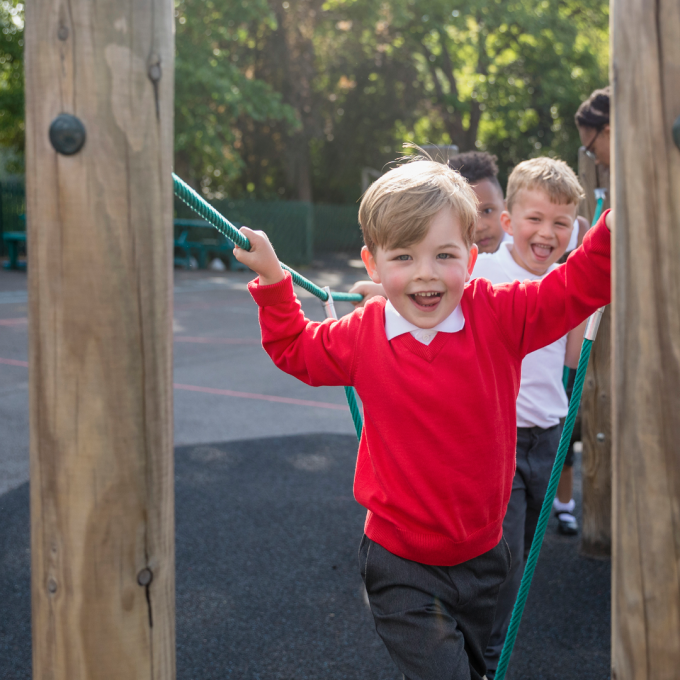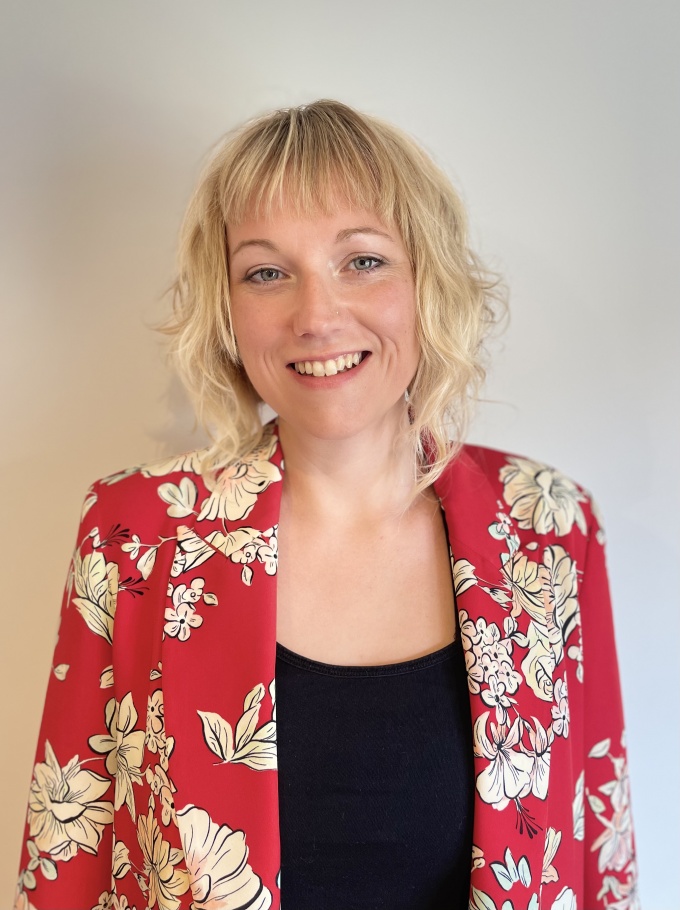“The more healthy relationships a child has, the more likely he will be to recover from trauma and thrive. Relationships are the agents of change and the most powerful therapy is human love.”
Bruce D. Perry Senior Fellow of the Child Trauma Academy in Houston, Texas.
In this guest blog, Thrive Licensed Trainer ® and independent consultant Sharon Gray (pictured above) reflects on how schools can put resilience at the heart of the new term following the challenges of lockdown. Sharon has played a leading role in developing a recovery approach within a Multi Academy Trust that enables students of all ages to reconnect and rebuild emotional resilience with a strong focus on relationships. Supported by highly-skilled staff and an incredible group of Thrive Licensed Practitioners ® this piece of work has gone on to inspire other organisations, with Sharon taking the strategic lead with similar initiatives in South Gloucestershire, Wiltshire, Calderdale and Lincolnshire.
The Embark Federation is a trust of nine schools across Derbyshire with a collective goal: working as a team to create stand out schools at the heart of their communities. It has four core beliefs: family, integrity, teamwork, and success. The Trust has a number of Thrive Licensed Practitioners across their settings and they have been fundamental when looking at this approach. The Trust’s values, along with the core underpinning theory and practice of Thrive, are at the heart of the Reconnection to Recovery and Resilience Programme, which has been designed to put the social, emotional and mental health and wellbeing needs of children at the centre of their learning journey on their return to school in September.
“Discussions about how we were going to support our children on their return to school began relatively early on in lockdown”, said Matthew Crawford, CEO of the Embark Federation. “After the initial couple of weeks – which were incredibly busy for us, organising free school meal provision for our vulnerable children, and also developing our home learning provision – we quickly turned our attention towards the scale of the challenges yet to come, and began the process of preparing.”
Following a conversation between Matthew and Sarah Armitage, (the National Leader of Governance and Chair of Trustees at Embark) it was decided that a Zoom call would take place to plan a programme of recovery. This would involve myself and several specialist and national leaders of education, Thrive Practitioners and staff from across the Embark Federation.
“Our initial plan for the meeting was that we would work together to organise and create resources for a Reconnection to Recovery and Resilience Programme, which would help our children settle back into school, because we knew most pupils were not going to be equipped to go straight back into formal lessons”, said Matthew.
“However, with support and guidance from Sharon, over the course of our Zoom conversation, it became clear that we wanted the project to be something much bigger and more ambitious than that. We wanted to create something that would help our children, their families and our staff teams – and those further afield – to have the time and space to reflect on their experience of lockdown. We wanted to give them the opportunity to express their thoughts and emotions, and, ultimately, to increase their resilience, and help everyone within our community to move forward with positivity – enabling them to flourish and thrive.”
The group decided that nine teams would be established, each of which would be responsible for one of the nine stages that would form the basis of the Reconnection to Recovery and Resilience Programme. These nine stages are outlined below:

Through each of the teams and each of these nine stages, the social, emotional and mental health of all stakeholders is deeply considered, and the short-term and long-term impacts of the pandemic are taken into account. Each team consists of staff from across the Embark Federation and beyond, all of whom have relevant expertise, strengths and skills to offer, and who put themselves forward to contribute. Despite Embark being a primary only trust, the programme has been created with all pupils in mind, ranging from ages 3 – 18, and also includes resources relevant for special schools.
The first thing that the leaders within Embark had to do, before putting together this programme, was to ask the right questions and to listen really carefully to parents and staff to find out what the needs were, both for their children, and for staff. This was done through the formal means of questionnaires, but also via email and through lots of informal conversations. It had to be done in a very sensitive and encouraging way, facilitating a space of psychological safety, creating the opportunities for all to be comfortable to be open and vulnerable in describing their challenges. We needed to allow all stakeholders to feel safe in sharing their personal experiences of the pandemic, and in telling us the kind of support that they felt was needed for children, parents, staff and local communities as a result. We did not want to make any assumptions, as although we may all be in the same storm at sea, we also know that we are all in our very own, different boats.
Anna Upton, headteacher of Chaucer Junior School, in Ilkeston, Derbyshire, which uses the Thrive Approach, is another leader who has played an integral part in putting together the programme. She is the project manager of team six. This is the largest team of the programme, with the crucial role of planning and resourcing the reconnection approach - facilitating the secure base from which steady, regulated adults could be truly available and respond to increasing numbers of children and families from a place of self-awareness as opposed to a potential space of unconscious self-defence.
Anna said: “The theme of our Reconnection to Recovery and Resilience Programme is ‘Rising Strong’, and its aim is to fully acknowledge every child’s individual experience of lockdown, give them the opportunity to express their thoughts and emotions, and also to share all the new things they have learned while at home.”
Without a doubt, resilience is a skill which all our children need to develop, and by coming together as a community through this pandemic, and by providing the right relational support, we can help our children to develop resilience. It’s really important that we support our children to be resourceful, and as self-aware and self-regulated as possible – and that’s what I believe this approach achieves. It is equipping our children with the inner resources that will enable them to be successful later in life – and for a future we cannot predict yet.
The impact of Embark’s Reconnection to Recovery and Resilience Programme has gone far beyond anything that Matthew and his team could have predicted at its inception.
“From the beginning we wanted this programme to help pupils beyond our own trust, which is why it was aimed at pupils aged 3 – 18 right from the start, but our thinking at that stage was that it may be useful to some of the other local schools in Derbyshire. However, it has attracted attention nationally, and even internationally – from as far afield as Germany, Poland, Sweden, Australia and New Zealand,” added Matthew.
The Embark family, supported by the Thrive Approach, has truly lived out its values of family, teamwork, integrity and success during a time when those values have mattered more than ever. The approach taken by Embark, has now informed similar initiatives on a larger scale, including working with local authorities in South Gloucestershire, Calderdale, Wilshire, Lincolnshire and Wales. Our approach is one of compassionate care, kindness and candour. Together we Thrive.
Sharon Gray OBE NLE is an independent consultant with Wholehearted Learning www.sharongray.org, she has been a Thrive trainer for almost five years leading the Childhood, Adolescent Practitioner and SLT courses, has written a number of supportive documents and the Reconnecting after Lockdown webinar. Sharon was a headteacher for 20 years (mainstream and special schools - SEMH, primary and secondary), an Ofsted Inspector for 10 years, and is currently a member of the Youth Justice Board with strategic oversight of education in custody and the development of the first secure schools as we move from our current system of custody for children. She is also an independent adviser to the Department for Education on mental health, wellbeing and behaviour. In 2013, she was named Teacher of the Year at the Pride of Britain Awards.
Over to you
Reduced anxiety and behavioural incidents. Calmer classrooms filled with engaged leaners. Improved relationships with parents and carers. These are just some of the outcomes reported by settings embedding Thrive’s whole-school approach to mental health and wellbeing. Are you ready to join them? Click here to get started.
Pass it on
Small actions can lead to a big ripple effect. If you enjoyed this post or found it helpful, please consider supporting us in our mission to help every child and young person feel safe, supported and ready to learn by sharing it using the social media buttons below.
Want to join a like-minded community of senior leaders and classroom staff benefitting from insights and strategies to improve attendance, behaviour and attainment? Add your email address below. (It’s easy to unsubscribe).






_680.jpg)
(1)_680.jpg)
_680.jpg)
